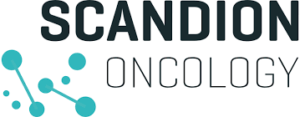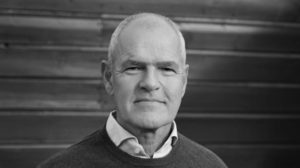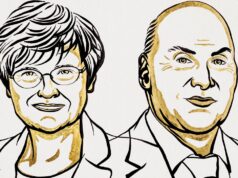
Har Scandion Oncologys pipeline Wall Street-potential?
Läkemedelsutvecklare tävlar om att hitta lösningar på problemet med resistens till cancerläkemedel och framsteg från innovativa bolag som ORIC Pharmaceuticals belönas rikligen av investerare. Danska Scandion Oncology deltar i kampen mot cancerläkemedelsresistens med en stark pipeline, och igår meddelade bolaget att den första patienten behandlats med bolagets huvudkandidat SCO-101 i kombination med kemoterapi i en pågående fas II-studie. BioStock har talat med vd Nils Brünner för att få veta mer om hur Scandion Oncologys kandidater står sig i den internationella konkurrensen.
Trots flera forskningsframstegen beräknas hela 50 procent av alla cancerpatienter med metastaserad cancer inte svarar på den behandling de ges. Det beror antingen på att cancercellerna är resistenta mot läkemedlet redan vid diagnostillfället, eller att cancern utvecklat resistens under behandlingens gång. Resistensutveckling sker genom en serie komplexa biologiska mekanismer som ger cancerceller förmågan att undkomma effekterna av vanliga behandlingar såsom kemoterapi.
Varje år diagnosticeras över 18 miljoner människor med cancer och nära 10 miljoner människor dör varje år till följd av sin cancersjukdom. Den belastning som detta innebär för både patienter och sjukvårdssystem världen över har genererat en enorm marknadspotential för den som lyckas utveckla nya behandlingar mot cancer. Fram till nyligen har dock mycket få av dessa innovativa behandlingar syftat till att bekämpa resistens mot cancerläkemedel.
ORIC IPO visar investerarnas intresse
Detta håller dock på att förändras. Ett tydligt tecken på det kom i april i form av en övertecknad börsnotering av San Francisco-baserad ORIC Pharmaceuticals, ett bioteknikbolag som utvecklar behandlingar mot cancerläkemedelsresistens. ORIC, en förkortning av Overcoming Resistance In Cancer, tog in 120 MUSD i samband med sin börsnotering, vilket kraftigt översteg det preliminära målet om 86 MUSD, och bolaget har nu, den 28 maj, ett marknadsvärde på 808 MUSD.
Bolagets huvudkandidat, ORIC-101, riktar sig mot glukokortikoidreceptorn som har kopplats till resistens främst mot antiandrogenbehandling av prostatacancer men också mot flera andra typer av cancerbehandlingar i ett antal solida tumörtyper. För närvarande genomgår kandidaten en fas Ib-studie där behandlingen kombineras med ett brett spektrum av cancerterapier som redan finns på marknaden.
Scandion Oncology har liknande potential
På andra sidan Atlanten, i Europa, arbetar Köpenhamnsbaserade Scandion Oncology också med att ta fram behandlingar som syftar till att bekämpa resistens mot cancerläkemedel. Bolaget utvecklar tre kandidater inom området och huvudkandidaten, SCO-101, testas just nu i en klinisk fas II-studie, där den kombineras med kemoterapi (FOLFIRI) i patienter med FOLFIRI-resistent metastaserd kolorektalcancer.
 Så sent som igår meddelade bolaget att den första patienten har behandlats med SCO-101 i kombination med kemoterapi, och inga oväntade SCO-101-relaterade händelser har observerats. Genom att mäta en exponeringsbiomarkör under behandlingen kunde man se att SCO-101 hade resulterat i en förväntad förändring i förekomst av denna exponeringsbiomarkör. Det indikerade i sin tur att SCO-101 var närvarande i patientens kropp och återfanns i en effektiv koncentration.
Så sent som igår meddelade bolaget att den första patienten har behandlats med SCO-101 i kombination med kemoterapi, och inga oväntade SCO-101-relaterade händelser har observerats. Genom att mäta en exponeringsbiomarkör under behandlingen kunde man se att SCO-101 hade resulterat i en förväntad förändring i förekomst av denna exponeringsbiomarkör. Det indikerade i sin tur att SCO-101 var närvarande i patientens kropp och återfanns i en effektiv koncentration.
Hittills indikerar prekliniska data att SCO-101, SCO-201 och SCO-301 har förmågan att motverka läkemedelsresistens i cancerceller. Biologin bakom Scandion Oncologys kandidater skiljer sig dock avsevärt från ORICs glukokortikoidantagonist. Huvudkandidaten SCO-101 riktar sig mot två proteiner i kroppen som kallas ABCG2 och SRPK1, som båda visat sig vara involverade i att generera resistens mot cancerläkemedel.
Det danska bolaget har nyligen gått ett steg längre genom att visa att dessa molekyler kan användas som biomarkörer för att förutsäga känslighet och resistens mot adjuvant FOLFIRI-behandling hos patienter med avancerad koloncancer (stadium III). Det öppnar för Scandion Oncology att ta steget in i precisionsmedicin, ett område som blir alltmer relevant inom onkologi. Läs mer.
Bortom cancerläkemedelsresistens
Men Scandion Oncologys verksamhetsområde sträcker sig även utanför cancer. Bolaget har nämligen ett pågående projekt som undersöker möjligheterna för att bekämpa antibiotikaresistens, något som orsakar ständig frustration för vårdpersonal som inte kan behandla patienter med allvarliga infektioner. Här utvecklar Scandion Oncologys SOM-001, en kandidat som bygger på upptäckten att några av bolagets substanser mot cancerläkemedelsresistens även besatt förmågan att motverka antibiotikaresistens i bakterieinfektioner genom en ny verkningsmekanism.
En ny in vivo-studie – där möss infekterades med multiresistenta bakterier (MRSA) och behandlades med antingen SOM-001, Vancomycin eller saltlösning som positiva och negativa kontroller – visade att SOM-001 kunde oskadliggöra MRSA-bakterierna. Fyndet indikerar att SOM-001 har kraftfulla antibakteriella egenskaper och bolaget kommer nu genomföra ytterligare prekliniska studier med både kandidaten och andra analoger.
Scandion Oncologys vd kommenterar portföljens potential
Sammantaget har Scandion Oncology en bred läkemedelsportfölj som inte bara har potential inom området cancerläkemedelsresistens, utan också sträcker sig till områdena precisionsmedicin och antibiotikaresistens. BioStock kontaktade bolagets vd Nils Brünner för att diskutera denna potentialen samt betydelsen av de färska positiva resultaten inom antibiotikaresistens.
»I do not see ORIC as a competitor. They are targeting another resistance mechanism from the ones we are targeting. Whether they can be a collaborator in the future is hard to foresee, but it is certainly an interesting thought« — Nils Brünner, vd för Scandion Oncology
Nils Brünner, what did you think when you heard about ORIC’s IPO?
– This was a very nice surprise since we did not know ORIC Pharmaceuticals beforehand. We have carefully been reading the available material about ORIC and I do not see them as a competitor but more as a collaborator. Since the clinical program of ORIC is very similar to Scandion Oncology’s clinical program and since the two companies are at the same development stage, I find it extremely interesting and encouraging to see the value of ORIC on the US market. It is important for a company like Scandion Oncology to see that there are other players in the field of combatting drug resistance in cancer. It gives credibility to the area. Moreover, it also raises the awareness of the field.
In what ways is SCO-101 similar and different from ORIC’s candidate?
– The two companies are actually rather similar in their focus, approach and developing stage. The major difference lies in the targets of the drugs. While ORIC is targeting the glucocorticoid receptor, Scandion Oncology is targeting both the SRPK1 kinase and the ABCG2 drug efflux pump, both of which have been shown to be involved in cancer drug resistance.
Would you say SCO-101 deserves the same attention from investors?
– We actually get a lot of positive attention from our investors already. It is the investors that determines the share price. With that said, the “price-tag” that is now on ORIC gives good expectations for the future of Scandion Oncology.

Do you see ORIC solely as a strong competitor to Scandion Oncology or do you see potential for partnership?
– I do not see ORIC as a competitor. They are targeting another resistance mechanism from the ones we are targeting. Whether they can be a collaborator in the future is hard to foresee, but it is certainly an interesting thought.
On a lighter note, considering ORIC’s large haul, do you regret not listing Scandion Oncology on the US stock market, and would you think about doing so in the future?
– No, I do not regret that we had our IPO in Sweden on the Spotlight stock market. It has been very successful with a lot of good and faithful investors. I am not sure that we would have had a similar path in US not being a US company. However, who knows what will happen in the future.
Scandion Oncology is developing a diverse pipeline, which is aimed not only at treating cancer drug resistance, but also at developing biomarkers and treatments against antibiotic-resistant infections. What are the benefits and challenges of this diversity?
– We want to focus on the treatment of drug-resistant cancer. In order to optimise such treatment, one has to co-develop biomarkers that can be used to find the patients with the highest likelihood of treatment benefit. So that’s where Scandion Oncology is pushing most of its efforts.
– However, an opportunity to introduce a new drug in the treatment of antibiotic-resistant bacteria must be followed. Scandion Oncology has decided to bring SOM-001 to the next stage and then it will be commercialized – most probably through a spin-out or a licensing deal. We believe that we can increase the value of SOM-001 by performing a number of extra studies.
Regarding SOM-001, how did that project come about at Scandion Oncology?
– When I worked at University of Copenhagen, one of my colleagues worked in the field of antibiotic resistance. She and I had discussed similarities and differences between her field of research and my field of research several times. When we identified new drugs that could block cancer drug resistance, it was obvious to ask her to test it in antibiotic resistant bacteria. The hypothesis was that SOM-001 would block resistance mechanisms in bacteria. This showed not to be the case – instead SOM-001 had its own bacterial killing effects.
Why is antibiotic resistance important to study and find an answer to?
 – It is an ever-growing medical problem and, as far as we can see, only very few new antibiotics are under development. So, a drug like SOM-001, which can kill otherwise antibiotic-resistant bacteria through a new mechanism of action, could be a very important addition to our fight against resistant bacteria.
– It is an ever-growing medical problem and, as far as we can see, only very few new antibiotics are under development. So, a drug like SOM-001, which can kill otherwise antibiotic-resistant bacteria through a new mechanism of action, could be a very important addition to our fight against resistant bacteria.
What are the next steps in the SOM-001 project?
– We will perform more complex animal studies, test more clinical samples with antibiotic-resistant bacteria and then perform GLP animal toxicity studies. In these studies, we will also include the SOM-001 analogues.
Finally, as we live in unprecedented times having to deal with a pandemic, Scandion Oncology seems to be weathering the storm quite well. Yesterday you announced that the first patient has been treated with SCO-101 in combination with FOLFIRI, meaning the clinical trial is proceeding – were there major delays with this trial due to Covid-19?
– First of all, I am very happy that the patient did not suffer from additional side effects when we added SCO-101 treatment to FOLFIRI treatment. Secondly, the Covid-19 pandemic did cause a delay since the hospitals closed down or down-prioritized ongoing clinical trials. As it looks right now, the situation seems to be under control and patient recruitment has resumed. Furthermore, according to our clinical partners, we will not have problems recruiting the remaining patients, since no further treatment options will be available to many colorectal cancer patients will end up with drug resistant disease.
What are your overall expectations for the months to come in terms of the company’s output?
– We will have a continuous stream of news from our ongoing and planned clinical studies with SCO-101. At the same time, there will be news from our biomarker studies where we will test two SCO-101 targets SRPK1 and ABCG2 in tumour tissue from SCO-101 treated patients. Subsequent analyses will reveal whether presence of these biomarkers can be used to select the right patients for SCO-101 treatment.
– Scandion Oncology has recently informed the market that we are going into the area of cancer immunotherapy. When we have the first results, there will be further communication to the market.
– We are also continuing with our second drug candidate SCO-201. We expect news on that front, as the goal is to take it to clinical trials.
– Scandion Oncology also keeps very active within business development. I foresee news reporting on new collaborations, partnerships etc.
– SOM-001 will also generate frequent news. We will report on the results as well as on the business development.
Innehållet i BioStocks nyheter och analyser är oberoende men BioStocks verksamhet är i viss mån finansierad av bolag i branschen. Detta inlägg avser ett bolag som BioStock erhållit finansiering från.



